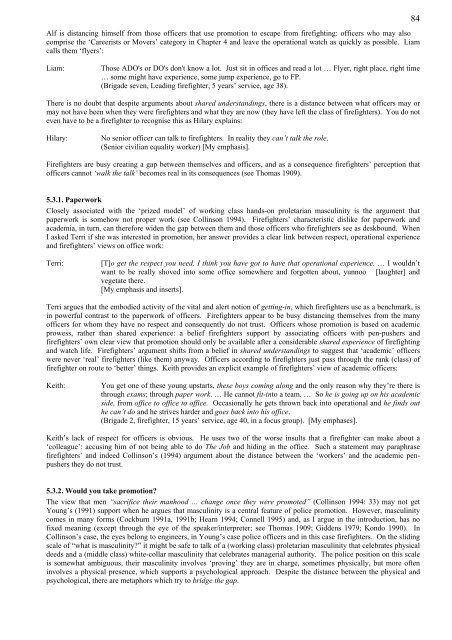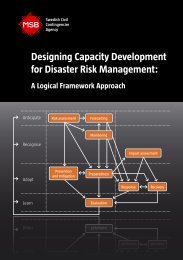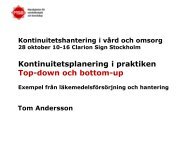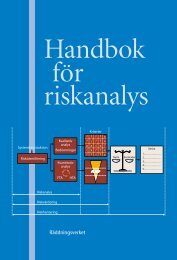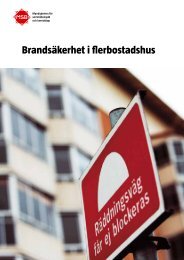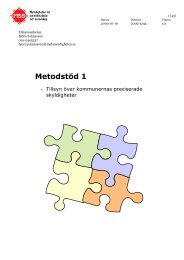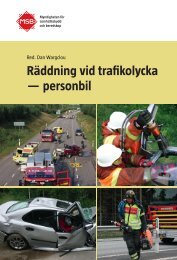One more last working class hero
One more last working class hero
One more last working class hero
Create successful ePaper yourself
Turn your PDF publications into a flip-book with our unique Google optimized e-Paper software.
Alf is distancing himself from those officers that use promotion to escape from firefighting: officers who may also<br />
comprise the ‘Careerists or Movers’ category in Chapter 4 and leave the operational watch as quickly as possible. Liam<br />
calls them ‘flyers’:<br />
84<br />
Liam:<br />
Those ADO's or DO's don't know a lot. Just sit in offices and read a lot … Flyer, right place, right time<br />
… some might have experience, some jump experience, go to FP.<br />
(Brigade seven, Leading firefighter, 5 years’ service, age 38).<br />
There is no doubt that despite arguments about shared understandings, there is a distance between what officers may or<br />
may not have been when they were firefighters and what they are now (they have left the <strong>class</strong> of firefighters). You do not<br />
even have to be a firefighter to recognise this as Hilary explains:<br />
Hilary:<br />
No senior officer can talk to firefighters. In reality they can’t talk the role.<br />
(Senior civilian equality worker) [My emphasis].<br />
Firefighters are busy creating a gap between themselves and officers, and as a consequence firefighters’ perception that<br />
officers cannot ‘walk the talk’ becomes real in its consequences (see Thomas 1909).<br />
5.3.1. Paperwork<br />
Closely associated with the ‘prized model’ of <strong>working</strong> <strong>class</strong> hands-on proletarian masculinity is the argument that<br />
paperwork is somehow not proper work (see Collinson 1994). Firefighters’ characteristic dislike for paperwork and<br />
academia, in turn, can therefore widen the gap between them and those officers who firefighters see as deskbound. When<br />
I asked Terri if she was interested in promotion, her answer provides a clear link between respect, operational experience<br />
and firefighters’ views on office work:<br />
Terri:<br />
[T]o get the respect you need, I think you have got to have that operational experience. … I wouldn’t<br />
want to be really shoved into some office somewhere and forgotten about, yunnoo [laughter] and<br />
vegetate there.<br />
[My emphasis and inserts].<br />
Terri argues that the embodied activity of the vital and alert notion of getting-in, which firefighters use as a benchmark, is<br />
in powerful contrast to the paperwork of officers. Firefighters appear to be busy distancing themselves from the many<br />
officers for whom they have no respect and consequently do not trust. Officers whose promotion is based on academic<br />
prowess, rather than shared experience: a belief firefighters support by associating officers with pen-pushers and<br />
firefighters’ own clear view that promotion should only be available after a considerable shared experience of firefighting<br />
and watch life. Firefighters’ argument shifts from a belief in shared understandings to suggest that ‘academic’ officers<br />
were never ‘real’ firefighters (like them) anyway. Officers according to firefighters just pass through the rank (<strong>class</strong>) of<br />
firefighter on route to ‘better’ things. Keith provides an explicit example of firefighters’ view of academic officers:<br />
Keith:<br />
You get one of these young upstarts, these boys coming along and the only reason why they’re there is<br />
through exams; through paper work. … He cannot fit-into a team. … So he is going up on his academic<br />
side, from office to office to office. Occasionally he gets thrown back into operational and he finds out<br />
he can’t do and he strives harder and goes back into his office.<br />
(Brigade 2, firefighter, 15 years’ service, age 40, in a focus group). [My emphases].<br />
Keith’s lack of respect for officers is obvious. He uses two of the worse insults that a firefighter can make about a<br />
‘colleague’: accusing him of not being able to do The Job and hiding in the office. Such a statement may paraphrase<br />
firefighters’ and indeed Collinson’s (1994) argument about the distance between the ‘workers’ and the academic penpushers<br />
they do not trust.<br />
5.3.2. Would you take promotion?<br />
The view that men “sacrifice their manhood … change once they were promoted” (Collinson 1994: 33) may not get<br />
Young’s (1991) support when he argues that masculinity is a central feature of police promotion. However, masculinity<br />
comes in many forms (Cockburn 1991a, 1991b; Hearn 1994; Connell 1995) and, as I argue in the introduction, has no<br />
fixed meaning (except through the eye of the speaker/interpreter; see Thomas 1909; Giddens 1979; Kondo 1990). In<br />
Collinson’s case, the eyes belong to engineers, in Young’s case police officers and in this case firefighters. On the sliding<br />
scale of “what is masculinity?” it might be safe to talk of a (<strong>working</strong> <strong>class</strong>) proletarian masculinity that celebrates physical<br />
deeds and a (middle <strong>class</strong>) white-collar masculinity that celebrates managerial authority. The police position on this scale<br />
is somewhat ambiguous, their masculinity involves ‘proving’ they are in charge, sometimes physically, but <strong>more</strong> often<br />
involves a physical presence, which supports a psychological approach. Despite the distance between the physical and<br />
psychological, there are metaphors which try to bridge the gap.


